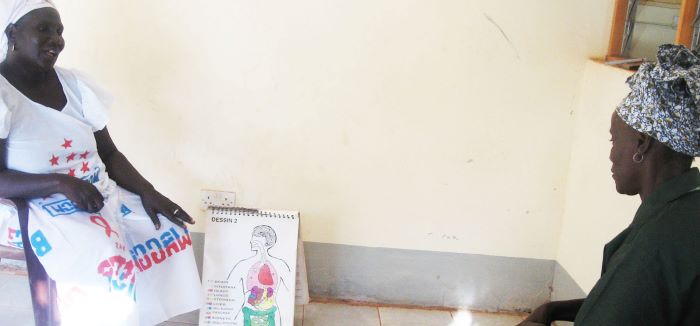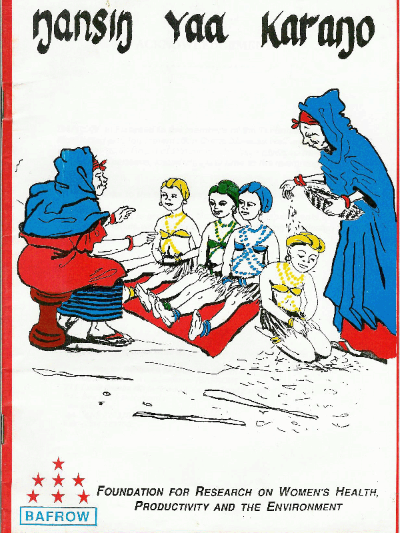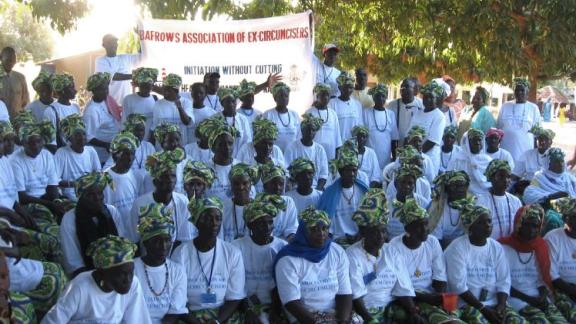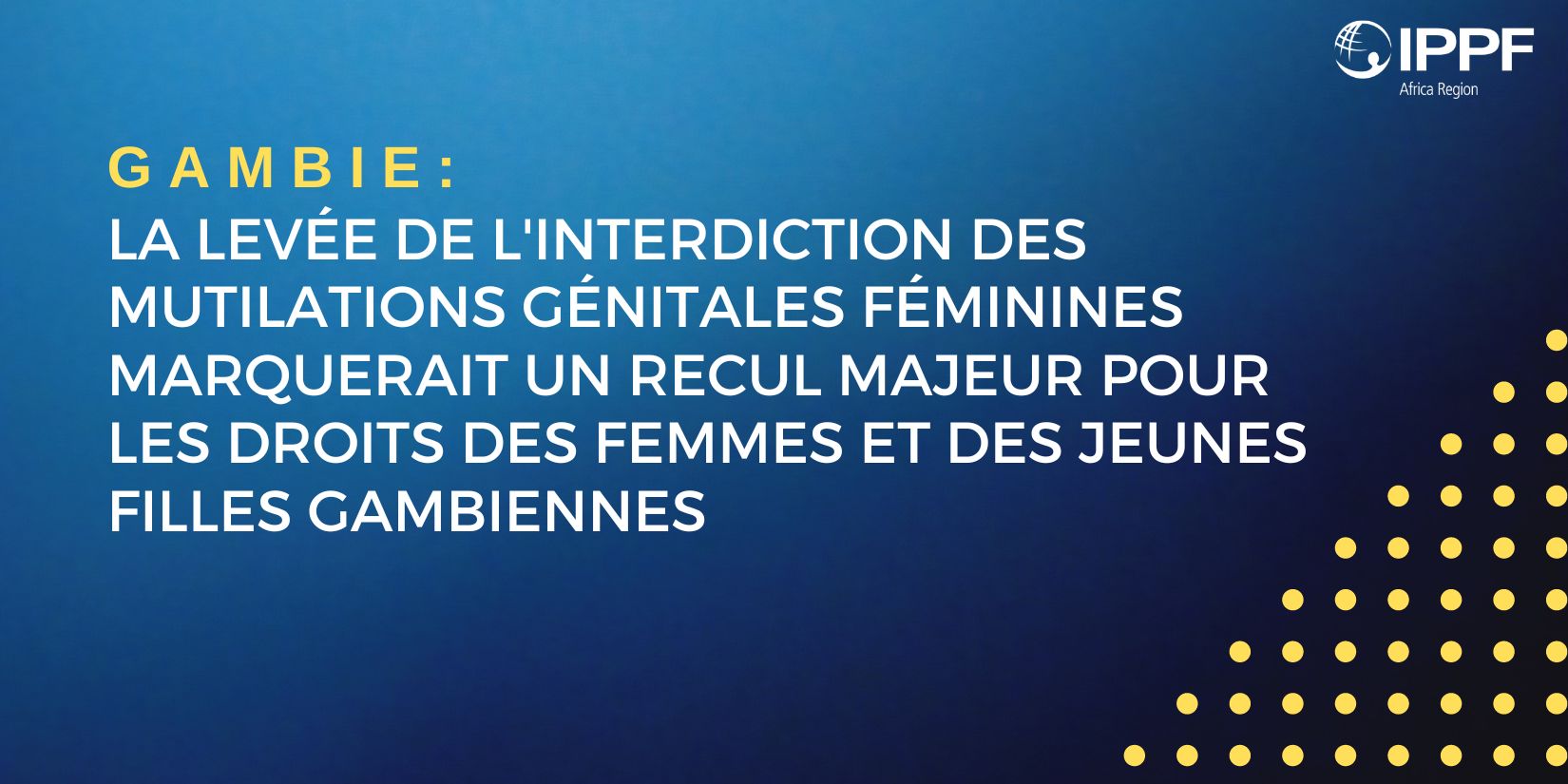By Sally Sadie Singhateh
Female genital mutilation (FGM) in The Gambia is considered as one of the most harmful social and cultural practices in the country, owing to its dire implications on girls’ social development, women’s sexual and reproductive health (SRH) and economic empowerment. According to the United Nation’s Population Fund (UNFPA), 75 per cent of women and girls aged 15-49 have undergone some form of FGM in The Gambia. Yet, only 46 per cent of women who know about the practice believe that it should not be continued, according to the 2019-20 Gambia Demography and Health Survey (DHS).
The Government of The Gambia has demonstrated commendable commitment to bringing an end to the practice, including the criminalization of FGM which carries heavy penalties, including three years imprisonment for practising it and life imprisonment for causing the death of a child due to the practice. Yet, FGM persists due to, among other factors, deeply rooted in cultural norms resulting in many affected women and girls having to live with the physical complications of the harmful practice. These complications include genital injuries, obstetric problems including fistulas, and exposure to infections including HIV as well as the psychological trauma of the experience and its repercussions.
Transforming Cultural Norms: A Path to Health and Empowerment
IPPF’s Collaborative Partner in The Gambia, The Foundation for Research on Women’s Health, Productivity and the Environment (BAFROW), has been in operation for over 20 years and has been contributing to government’s efforts to improve the quality of life of the Gambian people. The organization offers social services and preventive care to communities (women, youth, men) by including education, health care service, micro finance, small and medium enterprise, and environmental and behaviour change programs in their areas of interventions.

BAFROW’s model is based on a holistic/integrated approach centrally rooted in the concept of the “Well Woman”. A main feature of BAFROW’s approach is that its activities are designed in the context of civic empowerment, people’s participation and ownership. It is a process of transparency and accountability which involves communities taking charge in auditing their own systems and practices as well as their roles, responsibilities, obligations and rights as leaders and citizens in relation to an identified problem which they want to address. Hence, issues of culture and tradition, gender equality, human rights and social development as well as consultative processes, participation and decision making processes are discussed in a given context and are mainstreamed in the day-to-day empowerment activities and social services that are provided to them.
It is within this context that BAFROW has for the last 13 years been implementing activities that address harmful practices, including FGM. These include raising awareness on the health implications of FGM and other harmful traditional practices, empowering communities through functional education and providing livelihood opportunities for circumcisers; involving and engaging religious and traditional leaders in the campaign to end FGM; mobilizing youth to advocate for the elimination of the practice through BAFROW Youth Advocacy Group; providing services in case management of health complications resulting from FGM; and supporting the implementation of an alternative rites of passage for girls which is commonly known as “Initiation without Mutilation”.
Initiation Without Mutilation: A New Tradition for Girls
In The Gambia, FGM is mostly performed by traditional excisors (more than 97 per cent). A notable landmark in BAFROW’s work on FGM is the transformation of circumcisers into health mobilizers through intensive training courses and skills upgrading workshops organized yearly. The training courses include sexual reproductive health and rights (SRHR) information, environmental health, contra-FGM related advocacy skills, HIV/AIDS prevention, women and girls’ rights and the linkages between these issues. The women who participate in these trainings are usually engaged in expanding awareness raising activities on these issues in their communities and environments, and advocate for alternative rites of passage for girls.

Closely linked to the passage rites alternatives is BAFROW’s action-oriented study on female genital mutilation and cutting (FGM/C). The longitudinal study on Children at Risk of FGM registered girl children from birth to 6 years old into a girls’ protection program. These children were monitored through the program and their parents sensitized and empowered through a functional education program to ensure the girls were not cut. The passage rites program also included the development of a Curriculum for the alternative rites of passage and training of converted circumcisers and their assistants on its use. An essential part of the program was to create a culture of entrepreneurship in these women to discourage them from reverting to their FGM-related income generating practice.
These activities ultimately resulted in the creation of BAFROW’s Association of Ex-Circumcisers, which includes converted circumcisers and their assistants, and the first major BAFROW-supported alternative rites of passage ceremony conducted six years after the start of the study. The passage rites have become an institution of empowerment for girls.
Highlights of achievements
- 300 villages across the country reached directly with awareness activities
- 300 student nurses, health professional and extension workers trained
- 200 religious leaders trained
- 30 literacy centres established; 2000 women graduated
- 200 ex-circumcisers transformed
- 50 ex-circumcisers trained on the Curriculum and supported to operate small businesses
- 178 members in BAFROW’s Association of Ex-circumcisers and growing
- Creation of BAFROW Youth Advocacy Group; development of a youth training manual for FGM trainers
- Over 20 villages registered where FGM had not been practiced for 15 years+
- Over 10,000 girls registered in the passage rites Program; 150 went through the Ceremony.
Featured image (top): Committed to ending FGM, BAFROW’s Association of Ex-Circumcisers, which comprises of converted circumcisers and their assistants, has 178 members to date from every region in the country.
For more information about our FGM program, visit: https://www.bafrow.org/?page_id=1775
Follow IPPF Africa Region on Facebook, Twitter, Instagram and You Tube.
when
region
Africa
Related Member Association
The Foundation for Research on Women’s Health, Productivity and the Environment (BAFROW) -The Gambia











